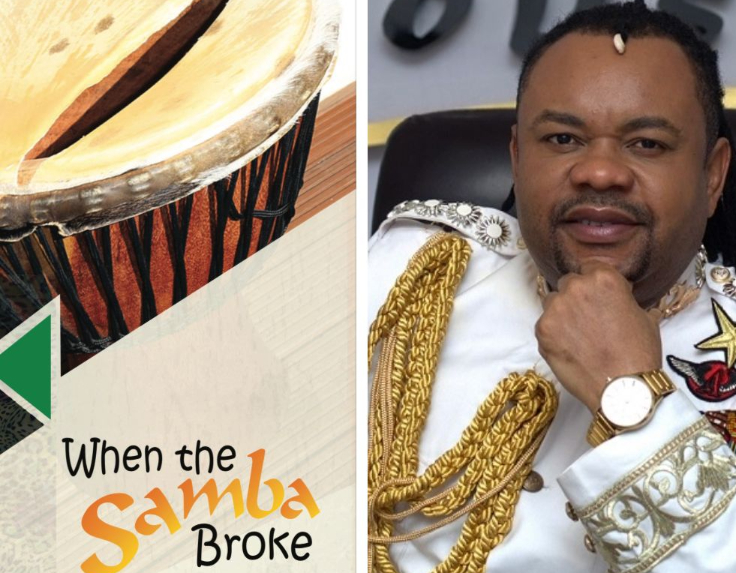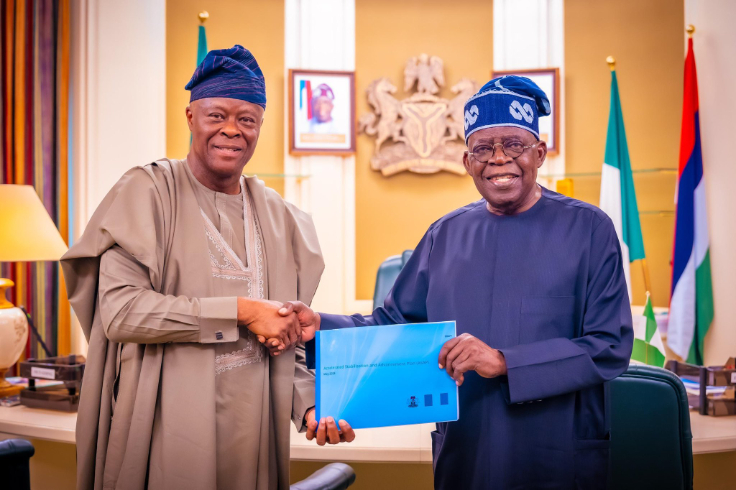
The Pan-African visionary behind Resurrected Black Wall Street and the Compassionate Capitalism Economic System, King Charles Lambert
King Charles N. Lambert, the Pan-African visionary behind Resurrected Black Wall Street and the Compassionate Capitalism Economic System, has taken his movement from boardrooms to the stage with a new traditional play, “When the Samba Broke,” a stirring fusion of art and activism that reimagines liberation through African storytelling.
Blending the vibrant rhythm of African village life with the pulse of modern awakening, “When the Samba Broke” draws audiences into a world where tradition and transformation collide. Set within the humble household of Ichie Akata, the play follows Ike, a man caught between ancestral duty and the desire for personal freedom. Through his lively exchanges with Ngodo, his witty yet conventional friend, and Ahudiya, a fierce mother in pursuit of justice, Lambert paints a vivid portrait of a community wrestling with its past while reaching for a more equal and enlightened future.
At the core of the story lies the age-old Osu caste system, which Lambert transforms into a searing metaphor for Africa’s enduring struggle against inherited divisions and psychological bondage. When Ike dares to love a woman branded as an Osu, his act of defiance transcends romance, it becomes a bold emblem of a continent determined to cast off centuries of fear, stigma, and silent submission.
The dialogue, filled with humor and social critique, gives the play its pulse. “Ngodo, the prince of cassava and yam… you must have scared away our maidens!” Ike teases in one moment, only to challenge his friend moments later: “This shows that you still have your senses driven to those days of our grandfathers. Don’t you realize that discrimination is very ancient and inhuman?”
Such exchanges reflect Lambert’s skill in using everyday speech to deliver profound moral lessons. His theatrical voice dismantles the same systems of thought his economic philosophy seeks to reform.
Thematically, When the Samba Broke mirrors Lambert’s Compassionate Capitalism ideology, which advocates empowering Africans as both consumers and investors. Through the characters’ choices and conflicts, the play dramatizes his central message that true liberation begins in the mind, and that economic freedom must grow from self-belief, creativity, and unity.
In another scene, Ngodo warns: “Don’t you know that all the people that live with Odogbu are outcasts to the gods?” Ike’s bold retort — “See man, that is trash!”, lands like a manifesto for modern Africa, echoing Lambert’s call for the rejection of systems that perpetuate inferiority and dependence.
Delivered in the cadence of traditional African theatre, the play is rich with proverbs, satire, and moral reflection. Its simplicity of setting makes it accessible, while its message gives it contemporary urgency.
Lambert’s broader initiative, the Black Wall Street Compassionate Capitalism System, continues to champion Africa’s economic independence through education, entrepreneurship, and reinvestment. In When the Samba Broke, those same ideals find expression through culture, turning the stage into both a classroom and a pulpit.
When the Samba Broke is not just a play; it is a movement in dialogue form. It challenges audiences to question outdated beliefs, reclaim dignity, and embrace a new rhythm for African progress.
As the curtain falls, Lambert leaves his audience with one lingering question: Can Africa truly move forward without breaking the chains of its past? His answer is clear, until the old samba of oppression and fear is broken, the dance of freedom cannot begin.
King Charles N. Lambert’s When the Samba Broke fuses art, activism, and African tradition to deliver a compelling call for liberation. With authentic dialogue, cultural depth, and visionary purpose, it challenges Africans to redefine independence through courage, justice, and self-determination.




